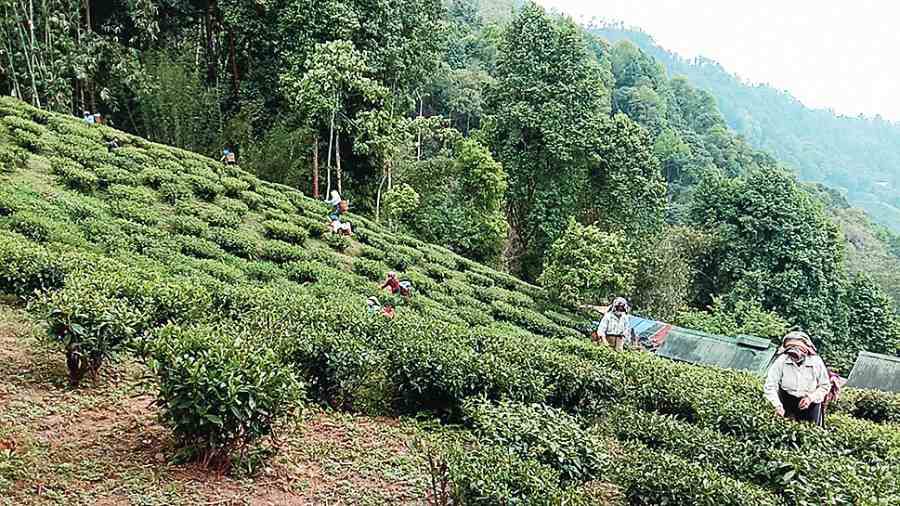The Tea Research Association (TRA) Tocklai launched its standard for best agricultural and marketing practices on Wednesday to help the industry cope with challenges posed by climate change and create “a people and planet positive” tea industry by 2030 with continuous improvement.
Keeping in view the need for research support and continuous innovations to bring about transformational change in the Indian tea industry, the TRA has integrated its good agricultural practices (GAP) and good manufacturing practices (GMP) in the form of TRA-TOCKLAI GAP-GMP Standard, aligned with the United Nation’s Sustainable Development Goals.
The GAP-GMP Standard was launched at the 58th annual general meeting of the TRA at Calcutta on Wednesday by Saurav Pahari, the chairman, Tea Board of India, in the presence of industry stakeholders. The standard supports strategies which will contribute in improving overall farm practices, management systems and sustainability performance.
The idea of having a homegrown sustainability certification was mooted by Joydeep Phukan, secretary, TRA, to the Council of Management of TRA on June 29. It was unanimously accepted.
To be implemented from January 1, the GAP-GMP Standard prescribes climate-resilient practices such as maintaining healthy soil, protecting natural ecosystems and biodiversity, encouraging afforestation and reducing green house gas emissions, the TRA said in a statement.
“TRA Tocklai believes that adoption of the best practices, indicated in the Standard, would contribute towards a people and planet positive tea industry by 2030 with continuous improvements,” the TRA said, adding the recommended practices would “significantly contribute” towards a climate-resilient tea industry.
The Jorhat-based Tocklai Tea Research Institute of the TRA with 112 years of experience has been providing solutions to the industry to grow and cope with challenges since 1911. Through its wide range of research and development activities since 1911, TRA Tocklai has made tea plantations economically viable in Assam and West Bengal, the two major tea-producing states.
TRA chairman Prabhat Bezboruah said Tocklai should come out with climate resilient tea clones after it has successfully sequenced the tea genome.
“This will go a long way in addressing the problems of drought and pest,” he said.
Dipanjol Deka, the secretary, TRA, said the “first homegrown sustainability certification” would help the industry cope with crop loss, damage to bush due to heavy rain or drought or quality of leaf.











